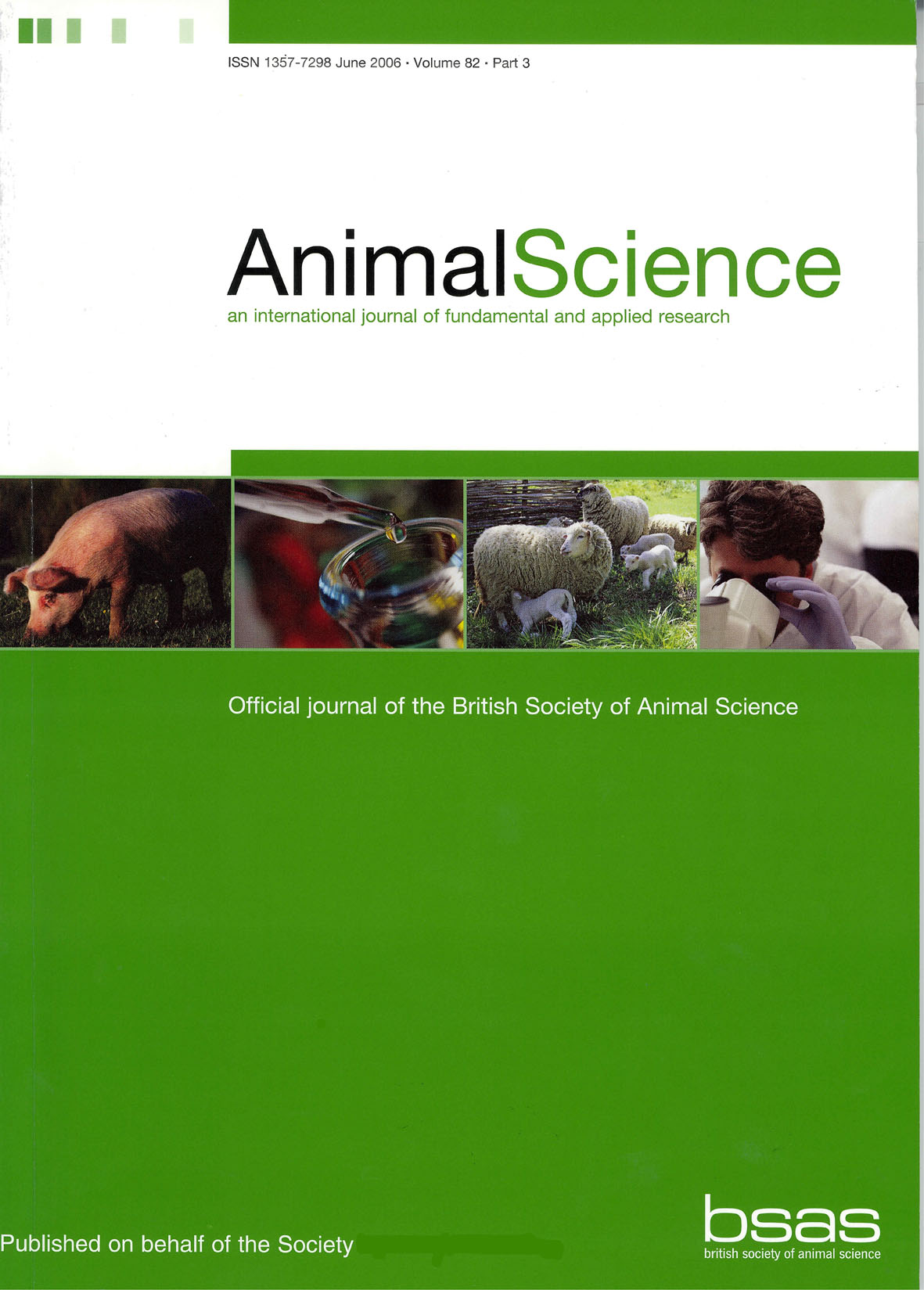Article contents
Performance, nutrient digestibility and intestinal disaccharidase activity of weaner/grower pigs given diets containing extruded Chinese stored brown rice with exogenous enzyme supplements
Published online by Cambridge University Press: 18 August 2016
Abstract
One performance and one ileal apparent digestibility (IAD) trial were conducted to investigate the performance, nutrient digestibility and intestinal disaccharidase activity of weaner/grower pigs given diets containing Chinese stored brown rice (CSBR) extruded and with exogenous enzyme supplements. In experiment 1, 96 crossbred (Duroc X Landrace X Large White) piglets weaned at 24 days of age were randomly divided into four groups according to a 2 X 2 factorial design. The animals were given four diets: (1) CSBR without enzyme supplementation, (2) CSBR supplemented with 625 mg a-amylase (2509 enzyme activity units) and 200 mg glucoamylase per kg (20018 enzyme activity units) per kg diet, (3) a normal temperature extruded CSBR (NTECSBR) without enzyme supplementation, and (4) NTECSBR supplemented with 625 mg a-amylase (2508 enzyme activity units) and 200 mg glucoamylase (20010 enzyme activity units) per kg diet. Growth, food consumption and specific activity of disaccharides in sections of the digestive tract were measured. In experiment 2, six male grower pigs with a mean initial body weight 21 kg, fitted with a simple ‘T’ cannula at the terminal ileum were used in a 6X6 Latin-square design. In addition to CSBR and NTECSBR diets with and without enzymes, a low temperature extruded diet LTECSBR with and without enzymes (as for other diets) was introduced. IAD of nutrients was measured. Extrusion resulted in a poorer (P < 0.05) food/gain for weaned pigs. Extrusion and enzyme supplementation had no influence (P > 0.05) on average daily food intake and average daily gain. Extrusion tended to improve (P = 0.075) IAD of starch but IAD of energy, dry matter, crude protein and amino acids were not influenced (P > 0.05). Enzyme supplementation had no effect on IAD of amino acids (P > 0.05), except for increasing IAD of lysine, threonine and isoleucine (P < 0.05). Extrusion and enzyme supplementation resulted in a higher (P < 0.05) maltase activity in the duodenum at day 14 of the trial. However, extrusion decreased (P < 0.05) the activity of maltase, isomaltase, sucrase and lactase in the jejunum at day 28. Enzyme supplementation increased (P < 0.05) the activities of maltase, isomaltase, trehalase and lactase in the jejunum at day 28. There was a positive extrusion X enzyme interaction (P < 0.05) for the activity of maltase and trehalase in the duodenum at day 14; a negative interaction was observed for the activity of lactase, maltase, isomaltase and trehalase in the jejunum at day 28. The results suggest that neither extrusion nor enzyme supplementation are necessary for CSBR to be used in pig diets.
- Type
- Research Article
- Information
- Copyright
- Copyright © British Society of Animal Science 2004
References
- 7
- Cited by


